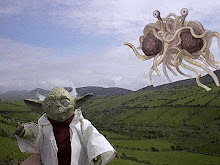Justin Brashares: Brashares Wildlife Conservation Fund
Of course, newspapers have always had "archives" of sorts. Often just a big cardboard box with a copy of each daily edition tossed in. The past issues of some were available, for a while, in the library, too.
Unless someone happened to know far enough ahead of time to subscribe to a "clipping service", when researching a piece of information, most of what had been written pertaining to the subject was not readily available - if not absolutely untraceable.
With the advent of the web a few years ago, we have begun to have available an almost impossibly huge archive of human (one hopes) thought pertinent to almost any inquiry.
It seems that the "information superhighway" - as it was called a few years back - has also become an "information multi-level parking structure." Which, in the long run, might prove to be more beneficial than mere rapidity of dissemination of data.
Southern California
On the negative attribute list, one must add the unreliability of a great deal of the information which one encounters.
Even so: Opinion, even if devoid of fact, is still information - that's my opinion, anyway.
Like a lot of old people, I don't go out "clubbing" much - so, I spend a lot of time reading. For the past several years my books have had a lot of competition from the internet. I don't "chat" but sometimes I am moved to comment.
Today is one of those times. This morning I saw a reference to a story which stated that there is a traffic in the meat of wild animals being smuggled into Europe and North America from Asia, Africa, and South America apparently for food.
Now, let me state from the outset: I have no knowledge - nor even an opinion - as to the veracity of the article nor of the reality of the alleged traffic.
That purported traffic is not what I'm writing about so if you're interested it can be found at Primatology.net.
What started this digression posing as an introduction, is the fact that the article was dated July 19, 2006 and the last comment - before mine - was dated August 28, 2008. Now that is persistence of a news item!
In the course of reading that article I saw a citation referring to "Justin Brashares, a professor of wildlife ecology at the University of California, Berkeley and his team."
I was curious as to who Dr. Brashares is and what kind of team was meant. So, I followed the link given: Justin Brashares and found something that I thought to be worth passing along.
What I found is a University Professor, a coterie of post-doctoral researchers, doctoral students and technicians, see: "Who We Are", who are getting beyond (way beyond) the ivy covered halls of academia and working to make a vital contribution to the world.
O.K. That's enough of my blather, now I'll let Dr. Brashares' own material tell the story.
The following information, including pictures, is taken wholly from: Dr. Brashares' websites.
(Dr.Brashares is not responsible for the captions)
Research Summary
The catastrophic global decline of biodiversity is widely recognized as among the most pressing problems we face as a society. The biological, economic and social consequences of depauperate oceans, tundras, savannas and forests remain unclear and in desperate need of study. My research attempts to understand how our consumption of wild animals and conversion of natural habitats affects the dynamics of animal communities and the persistence of populations. Work in my group extends beyond traditional animal conservation to consider the economic, political and cultural factors that drive and, in turn, are driven by, changes in wildlife abundance and diversity. Through these efforts, my group strives to propose empirically-based, interdisciplinary strategies for biodiversity conservation. Much of this work and, specifically, my research efforts in ESPM can be placed within three foci:
* Community and population ecology of wildlife in altered ecosystems
* Causes and ecological consequences of wildlife utilization
* Landscape planning and monitoring for wildlife conservation
Click on a picture for a larger image
California
Kids in Cameroon
Zebras in the dust
Laundry day: wash hung to dry
Two gentlemen and some cattle
University website:
UC Berkeley College of Natural Resources
Vancouver Is., B.C.
Carrizo Plain
Baboons in Ghana
Nap Time
Visit Dr.Brashares' Website


No comments:
Post a Comment